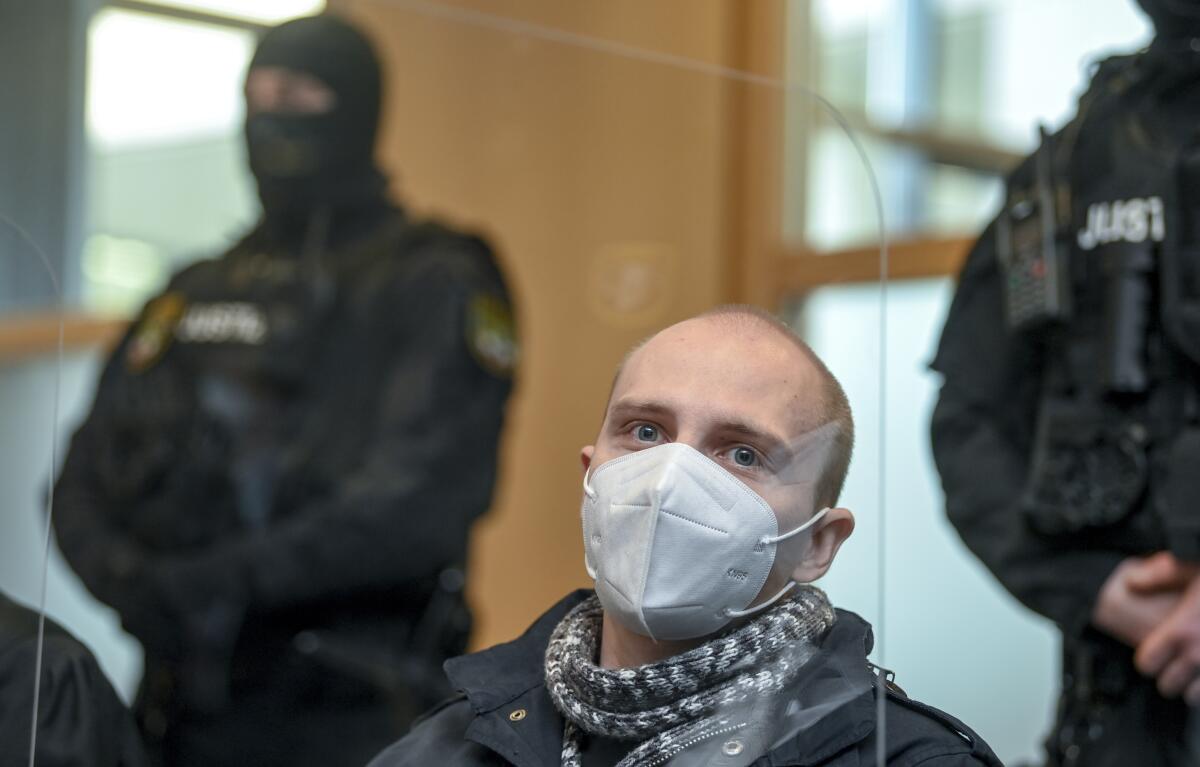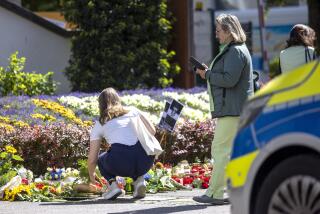German court convicts man of murder in Yom Kippur synagogue attack

BERLIN — A German court Monday convicted a right-wing extremist of murder and attempted murder and sentenced him to life in prison for his attack on a synagogue last year on Yom Kippur, Judaism’s holiest day. He killed two people after he failed to gain entry to the building.
The Oct. 9, 2019, attack is considered one of the worst anti-Semitic assaults in Germany’s postwar history.
The 28-year-old defendant, Stephan Balliet, posted a screed against Jews before trying to shoot his way into the synagogue in the eastern city of Halle while broadcasting the attack live on a popular gaming site.
Judges at the Naumburg state court, which met in the state capital of Magdeburg for security and capacity reasons, found him “seriously culpable,” German news agency DPA reported. That means he will be barred from early release after 15 years, which typically happens for people given life sentences in Germany.
Presiding Judge Ursula Mertens described it as a “cowardly attack” as she announced the verdict Monday. Balliet showed no reaction but took notes.
During his trial, which began in July, Balliet admitted that he wanted to enter the synagogue and kill all the 51 people inside. When he was unable to open the building’s heavy doors, he shot and killed a 40-year-old woman in the street outside and a 20-year-old man at a nearby kebab shop, and wounded several others.
Police raid homes in three German states after the government banned a far-right group that wants to reestablish a Nazi dictatorship.
He apologized to the court for killing the woman, saying that “I didn’t want to kill whites.”
German authorities have vowed to step up measures against far-right extremism following the Halle attack, the killing of a regional politician by a suspected neo-Nazi and the fatal shooting of nine people of immigrant background in Hanau — all of which happened within a year.
The synagogue’s damaged door, pockmarked with bullet holes, became a symbol of concern about rising anti-Semitism in Germany.
The head of Germany’s Central Council of Jews, Josef Schuster, said the verdict marked “an important day for Germany.”
“The verdict makes clear that murderous hatred of Jews meets with no tolerance,” he said in a statement. “Up to the end, the attacker showed no remorse, but kept to his hate-filled anti-Semitic and racist worldview.”
More to Read
Sign up for Essential California
The most important California stories and recommendations in your inbox every morning.
You may occasionally receive promotional content from the Los Angeles Times.










